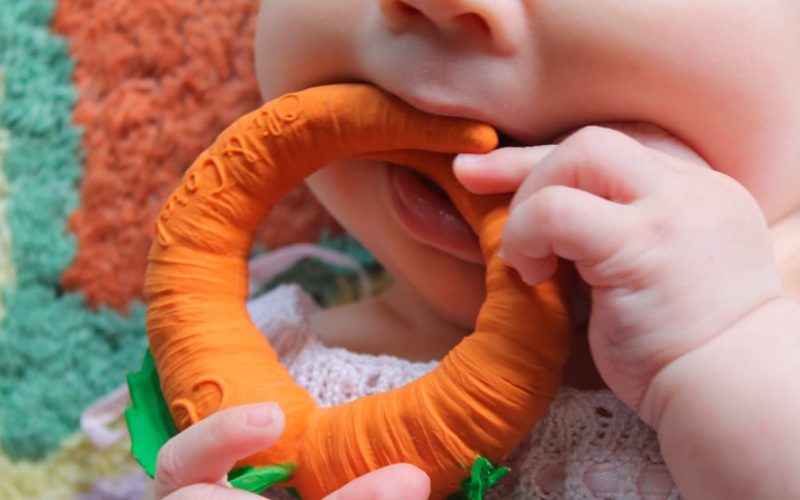Are you aware that babies are born with a complete set of teeth hidden underneath their gums? These baby teeth slowly grow out in their first year and are often noticeable between 6 and 12 months.
This process can be very inconvenient to babies, so baby teether is necessary.
Babies with their first set of teeth shooting out experience a great deal of discomfort that can be managed by teething rings. However, as new parents, how much do you know about baby teethers?
Read on to find out more.
When Should You Get Your Baby a Teether?
Usually, babies’ teeth start appearing as soon as they are done breastfeeding and then transition to solid foods. This is very common when babies are 2 or 3 years old.
Although not very visible, the teething process starts when a baby is two months old. Nonetheless, the crown of the first baby tooth won’t break until about 6 to 7 months.
Although, the timing for teething differs in babies, especially since genders play a major role. Baby girls tend to have their first teeth set before boys.
The incisors below usually shoot out first through the gums. It takes about eight days for a single tooth to erupt completely, and your child may experience some of the following:
- Drooling
- Loss of appetite
- Increased chewing of objects
- Irritability and fussiness
- Inflammation of the gum (in the area affected)
Parents who notice these teething symptoms in their babies typically try to comfort them.
It can be heartbreaking watching your baby go through this phase, but doctors recommend that the best thing to help is to get a baby teether.
Selecting a Baby Teether
How do you find the right teether for your baby, considering how fast their teeth are sprouting? It is nearly unbearable to watch your baby fight off the discomfort with no result.
This is where you come in as a parent by selecting the right tool to help the teething process.
There is a wide selection of materials and designs on the market. However, some factors must be considered before picking any teether for your baby.
Some of the factors include the following:
Is the Teething Ring Chemical-free?
Your baby will naturally chew on their teether to help relieve them of possible discomfort. This means they would swallow saliva produced when chewing on their teether.
It would be helpful to ensure that your baby’s teether is chemical-free to avoid chemical ingestion.
Parents should take the time to read the content of the package on the label to be sure of the beta materials used to manufacture the teether. Due to the use of phthalates, some teething rings are soft.
Other teethers contain fragrances that can affect your baby and cause irritation. Parents looking for a hypoallergenic option can settle for silicone rings.
Does It Contain Fluid?
Some baby teethers contain liquid. This can be poisonous, most especially if your baby perforates the ring while chewing on it.
This can force the fluid too deep into their mouth, and this can be fatal since babies can’t control most of what goes through their mouths. This fluid can present infections that can result in infections in the body.
Does the Baby Teether Have the Right Texture?
A good teether should be made with materials that can easily comfort your baby. Parents should be careful enough to choose a teether that their baby can hold onto easily.
Also, consider that rings with a soft, firm texture that can minimize irritation and reduce pain in your baby’s irritated gums should be considered.
Does the Teether Contain Small Parts?
When buying your baby’s teether, avoid the ones with little decorations and embellishments. This is important because, with time, babies can chew them off and risk swallowing them.
Dislodged parts of teething rings pose a choking hazard for babies. Instead, parents can opt for plain, undecorated teething rings.
When is It Best to Stop Your Baby From Using a Teether?
Medical doctors generally advise parents to remove teethers when their baby’s teeth start shooting into the oral cavity, where they become visible through the gums.
This is important because babies who are allowed to continue using teethers may experience delays in tooth growth. Mothers can gradually wean their babies periodically while introducing them to more solid foods.
Is your baby teething? What baby teether would you easily recommend to other mothers? Please share your thoughts about this article in the comments below.





